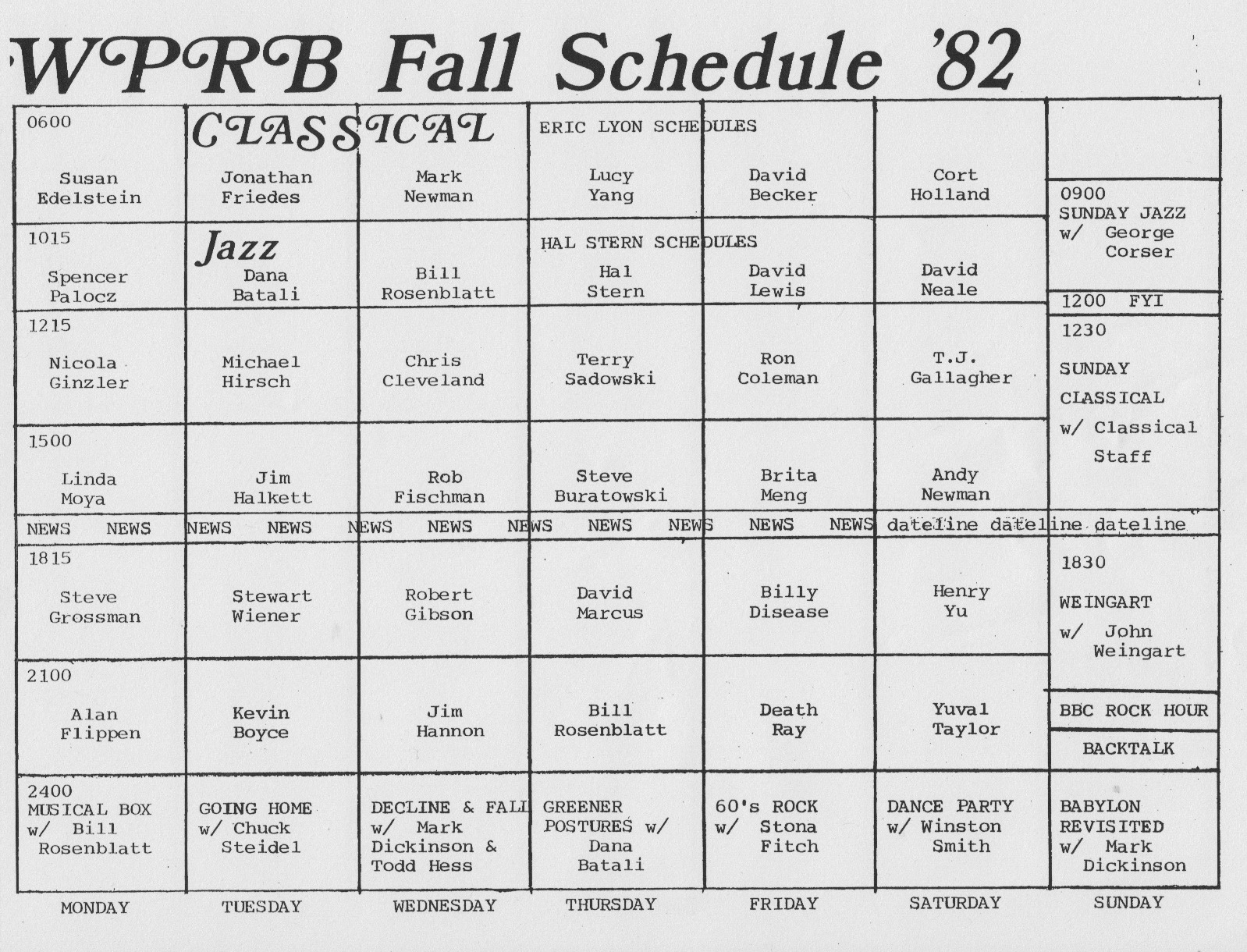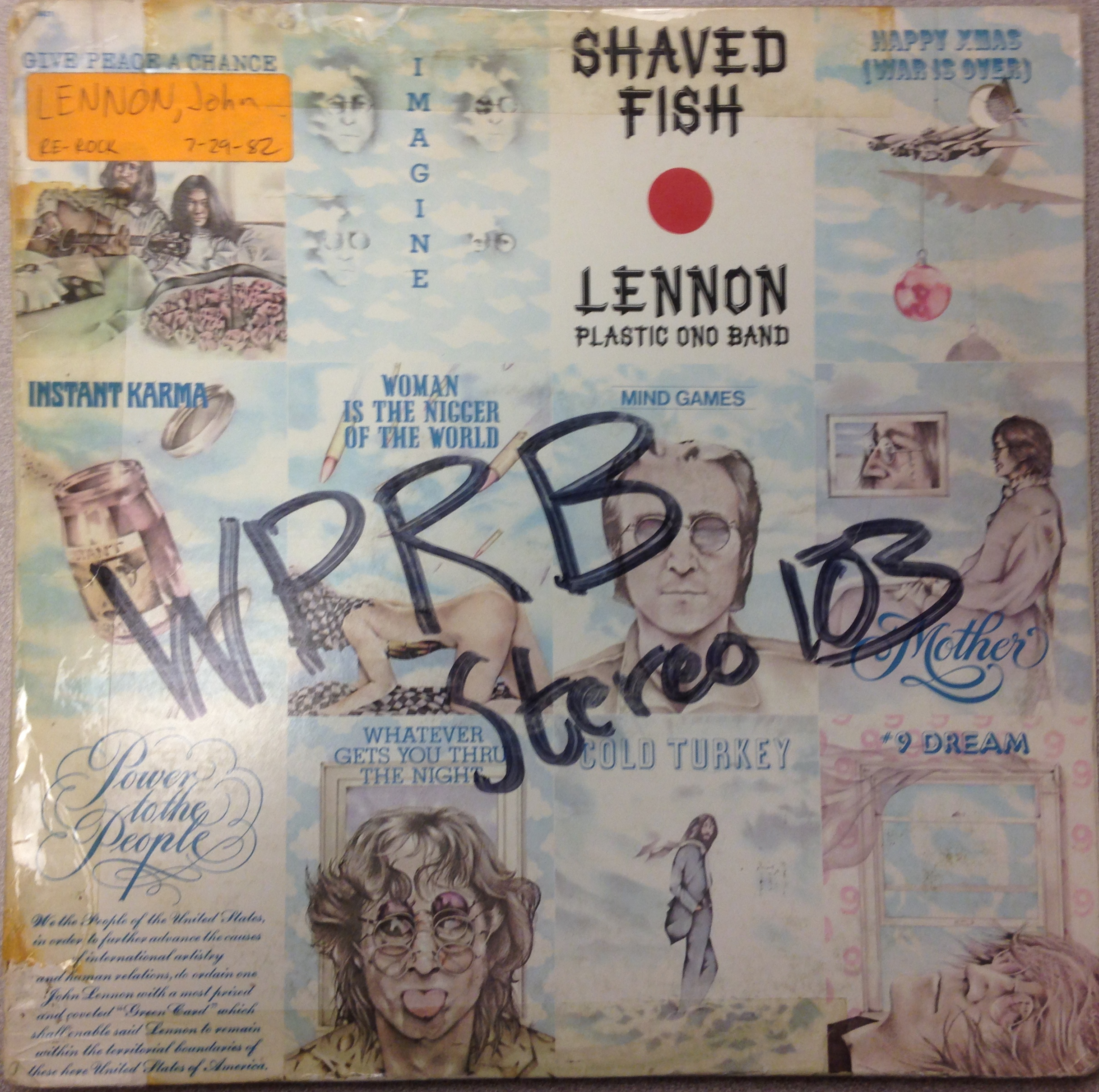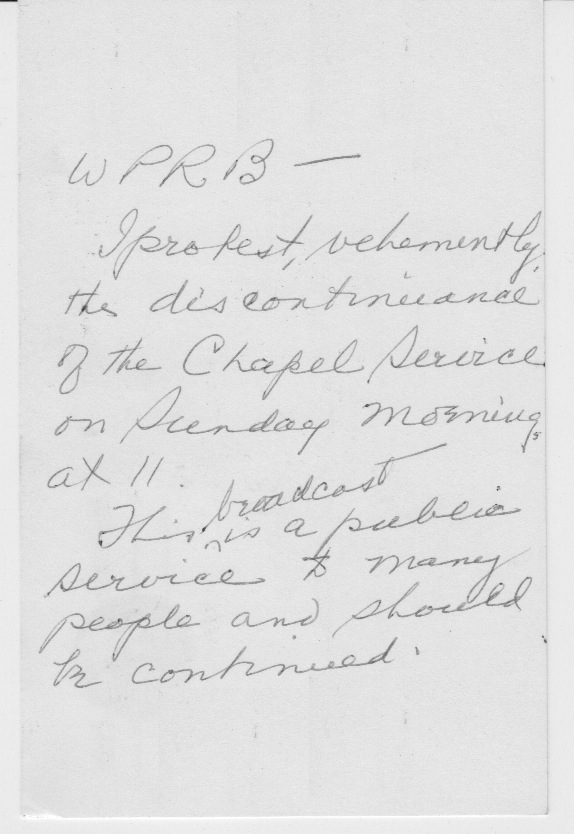WPRB at the DNC, Sting from the Police, and Freeform vs. Format

By Jordan Becker
I started at WPRB during the second semester of my freshman year in 1979. The ability to have the entire record library—and it was still all vinyl—at my disposal was intoxicating. Unless that was the fumes from the records.
At the time, the station’s rock programming was still very much beholden to the freeform model of the late 1960s-early 1970s. In fact, to my memory, the only requirement that we had was the obligation to play a certain amount of jazz during a rock show. That all changed, though, when Ashley Ellott became station manager, and Jason Meyer became program director. They attempted to turn the rock programming into something more consistent and more rock oriented. To me, there is something to be said for listeners having a general sense of what they might hear when they turn on the radio, and having some consistency from day to day and time slot to time slot theoretically results in listeners staying with the station for longer periods. On the other hand, they also insisted that we use the slogan “Your Music,” which was generally reviled—it might have worked at a professional commercial station, but was a bad idea for a college radio station.
Jason’s creation of an “emphasis system” that continued to allow the DJs to pick the majority of their songs from any record, and required playing songs from a few different categories of records, allowed the station to consistently focus on good new music, not forget recent favorites that were a bit older, and exposed jocks to a curated selection of older albums that they might not have been aware of (or had forgotten) was a good thing, in my opinion. It also led to a period of what seemed to be pretty strong listenership, based on the numbers of calls we received and the response we got at public appearances.
At the end of my sophomore year, I became assistant program director to Josh Weller, and then succeeded him as PD at the end of my junior year. As PD, I tweaked the emphasis system a little, but was a supporter of it. I have no idea how much longer it lasted. During my time at the station, our rock programming moved from that classic freeform FM radio sound to one that was primarily playing the punk and new wave music that was beginning to emerge during the early 1980s. But what I loved about the station was that I could, and did, play all types of music—the challenge was trying to make it work.
I have so many great memories from my WPRB years. There is no question but that it broadened my musical horizons, and cemented my love of music. I also made many great friends, some of whom I am in contact with to this day. But it also gave me the chance to do things that I never would have otherwise. I miss my time spinning records, doing segues, planning shows and discussing the music on air. A couple of years ago, I started music blogging, which has helped to scratch that itch a little.
Maybe my strongest specific memory was doing my show on December 8, 1980. I had the 9-12:15 slot, and with a little more than an hour to go in what was a normal show, the teletype machine starting ringing wildly. I was the only one in the studio, so I ran over to see what had happened, and saw that John Lennon had been shot. I announced that on the air, and gave updates, including announcing his death. I was never the biggest Beatles fan, but I understood the import of what had just happened, and ended my show with Beatles music.

I got to interview a number of bands and musicians, including Johnny Ramone, Sting, The Go-Gos, David Johansen, and, memorably, the members of Romeo Void. Debora Iyall, the lead singer, was drunk and spent most of the interview making stupid remarks and sketching pictures of penises on the yellow paper we kept in the studio.
LISTEN: Romeo Void station ID
I also got to introduce bands from the stage of the now legendary City Gardens, including the Ramones. I was amused reading the recent oral history of City Gardens and seeing references to taking bands to our studios for interviews that I did.
The summer after my sophomore year, I stayed in Princeton for the summer. Although I wasn’t full time staff, I filled in and did a few shows while working mostly at a bar/liquor store on Route 1. We had just gotten station t-shirts, they were blue with the logo in yellow surrounded by headphones, and a few of us went to see Peter Gabriel at Asbury Park, wearing the shirts. I remember being approached by many fans asking about the shirts and telling us that they listened to the station, and a few even recognized my name.
The next summer, I went to Europe, and came back to school early, allowing station manager John Muller to take a week off. As it turned out, the station had been given a number of backstage passes to a concert at Liberty Bell Racetrack in Philadelphia, featuring The Police, The Go-Gos, Oingo Boingo, The Specials and The Coasters. Although I had done none of the prep work, as program director, I made sure that I went to the show, and was able to do brief interviews with a mellow and surprisingly approachable Sting, who was nursing a cold, all of the apparently stoned Go-Gos, and future soundtrack master Danny Elfman. But my favorite memory of that show was asking Stewart Copeland, the drummer for The Police, to do a station ID for us (which Sting had done without question). Copeland tried to blow me off, and I told him that I worked for a college radio station that had played the band’s first album as an import, and he owed us. He shrugged and did the station ID.
LISTEN: Sting Station ID
LISTEN: Stewart Copeland ID
I also had the opportunity to see Jean Shepherd perform at Alexander Hall, in his WPRB sponsored show, and as I became more senior at the station, moved from spectator at the post-concert on-air pizza and beer schmooze fest, to one of the lead schmoozers. His brilliance as a monologist cannot be adequately described. One year, I was responsible for driving Shep to the motel that someone at the station had booked for him. It was very late, and when we pulled into the parking lot of the no-name motel, Shep understandably refused to stay there, and I ended up driving him to Newark to find a better place. What amazed me about him was his photographic memory—despite the very short amount of time that we ever spoke, each year, he remembered the details of our prior conversations.
Two other shows that I did stand out in my mind after all these years. The station used to have a show devoted to weird electronic-type music, named “Another Green World”, after the Eno album. One night, Bill Rosenblatt and I commandeered the show, and told the listeners that it was going consist of a live performance by “T.U.O. and The Blatt.” I was, at the time, around the station probably too much, and was sometimes called “The Ubiquitous One” and Bill was “The Blatt.” We hooked up a couple of signal generators we had taken from the tech department, one on the left channel and the other on the right. We took Bill’s cheap, broken electric guitar and hooked it up across both channels. And then spent the hour making noise, talking over the sound and generally screwing around. We got calls from listeners—almost uniformly positive.
On the other end of the spectrum, Ashley and Jason had done a morning show on either Saturdays or Sundays that was called “Weekend,” and it was their attempt to recreate a very mainstream, almost top-40 show. It sounded like nothing else that we had on the air. When they graduated, the show was given to me and Leslie Ehrlich for the summer. We hated the format, so we basically screwed with it. We cut the theme off in the middle, played the music we wanted, and I remember reading sports scores from obscure colleges and dumb news stories from the teletype. At some point, Leslie began to speak on air with a French accent, as “Veronique.” I remember getting a number of calls from people obsessed with what Veronique looked like. The show, mercifully, did not survive into the fall semester.
When I was program director, I was involved in a couple of programming changes. First, I wanted to take the chapel service off the air. As an atheist, it galled me that we were giving away a big chunk of our airtime to religious programming. Also, I had students willing to get up on Sunday mornings to play music, and I convinced our managing board to go along. I gave the Dean of the Chapel a number of weeks to try to drum up community support for retaining the service, because if we had gotten a flood of letters, we probably would have reconsidered. If I recall, we got one letter (see below), and the Chapel Service was cancelled.

I did have two memorable involvements with the news department. During that summer I stayed on campus, the Democratic National Convention was at Madison Square Garden, and the station got floor credentials. I was part of the WPRB team that reported from the convention, and got to interview a number of prominent politicians. I also got embarrassed by Sam Donaldson.
LISTEN: Jordan Becker reports from the 1980 Democratic National Convention. Sam Donaldson appears at the 3:40 mark. [Download]
On Inauguration Day, 1981, as a slap in the face of President Carter, who had been defeated, the Iranian government released the hostages that had been held for 444 days. Following an anxious call from the studio, I somehow ended up sitting in front of the board, deciding which news bulletins to run. I was totally not qualified for the job, nor was it my responsibility, but it was fun.
I also had a memorable and brief experience in the sports department. Over spring break my senior year, the basketball team had away games against Yale and Brown, and the regular sportscasters were unavailable. My roommate, Jon Waltman, a classical DJ and hoops fan, and I arranged to do the games, and we drove up to New Haven, broadcast the game without too many screw ups, then drove to Providence and checked into a hotel for the night. The next morning, in the pre-Internet era, we wanted to see how Brown had fared against Penn the night before, so we went to the hotel gift shop to get the local paper. There was only one copy left, and someone else was reaching for it at the same time that Jon did. He turned to the person and said, extremely seriously, “Excuse me, I need that paper—I’m a sportscaster.” The other person, suitably impressed, withdrew. That night, we broadcast an upset loss for the Tigers, and hit a huge snowstorm on the way back to campus. We decided to stop at my parents’ house in Westchester rather than try to make it back, and in the pre-cell phone era, just showed up, walking into a party that my high school age sister was throwing while my parents were out of the house. After throwing out some couples from my room and the guest room, we crashed, exhausted.
